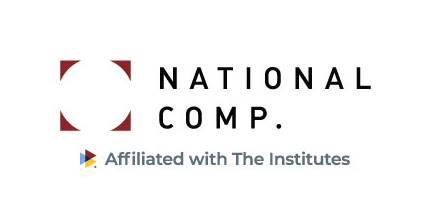When It Comes to Safeguarding Mental Health in the Workplace, Natasha Bowman Speaks from Hard-Won Experience

It was in the early days of the pandemic that Natasha Bowman attempted suicide. This was promptly followed by a bipolar disorder diagnosis. As she looks back, Bowman views that particular time of her life as incredibly formidable, completely changing her viewpoint on mental health.
Through that experience, Bowman has absorbed true, valuable lessons about protecting and preserving one’s mental wellbeing.
And what makes mental health and wellbeing such a crucial topic is just how far-reaching it can be. It affects every aspect of our lives, according to Bowman: It “has a significant impact on individuals, families, workplaces and communities,” she said.
“I believe that every person deserves to have their mental health valued, supported and prioritized,” she continued. “By creating awareness, providing education and implementing effective strategies, we can make a positive difference in people’s lives.”
Bowman looks to create and share this positive difference as the keynote speaker at this year’s National Comp conference in Las Vegas, Nevada. Bowman — the founder of The Bowman Foundation, an organization that works to enhance mental wellbeing in the workplace — will share her insights with attendees on the opening day of the conference, Wednesday, September 20, at 8:30 a.m. PST at Mandalay Bay.
Mental Health and the Workplace: They’re More Connected Than You Think
Though it may not always be actively prioritized, mental health in the context of the workplace is an area that is highly important to the overall success of both professional and personal performance.
“Addressing mental health at a societal level leads to better mental health outcomes, improved quality of life, and increased productivity for individuals and society as a whole,” Bowman said.
Specifically, if conditions in the workplace are less than optimal, the impact on a worker’s mental health can be extensive.
“[Mental health is] highly relevant in the context of workers’ compensation,” Bowman said. “Workplace factors can significantly impact an individual’s mental wellbeing.”
Bowman then went on to list a few of these factors, which can include everything from occupational stress to traumatic incidents and work-related injuries.
Additionally, when a worker does face injury, it’s imperative to not ignore the mental health component. Its link to recovery is too critical not to address.
“Ignoring the mental health aspect of workers’ comp can lead to incomplete treatment, prolonged recovery and increased costs,” Bowman said.
The benefits of incorporating a mental health component into the workers’ comp sphere include “enhancing injury management, supporting employees’ overall wellbeing and promoting successful return-to-work outcomes,” per Bowman.
By addressing their mental health needs within the workplace, both employees and their employers would experience the slew of advantages firsthand.
What Attendees Can Expect
During her keynote session, Bowman will share what she’s learned about mental health and wellbeing, drawing from her own and others’ previous experiences. Further, she will discuss why her own mental health struggles, including her bipolar disorder diagnosis, have been so pivotal to her new understanding.
“This diagnosis shifted my perspective about mental health and made me realize how much work needs to be done to cultivate cultures of mental wellness,” she said.
Additionally, Bowman looks to “discuss the importance of creating a psychologically safe work environment, where employees feel supported, empowered and able to bring their whole selves to work.” She will also provide tangible actions and strategies that will help keep mental health at the top of a workplace’s priority list.
Other topics that Bowman will touch on throughout the session include workplace stresses, resilience-building techniques and the power of “early intervention, promoting mental health awareness, and reducing stigma,” per Bowman.
She said that “attendees will leave with actionable steps and a renewed commitment to prioritize mental health in their organizations.”
Don’t Miss This Inspiring Session
Bowman is hopeful that by sharing her story, entitled “From Stigma to Support: A Call to Action for Workplace Mental Health,” she can encourage workers’ comp professionals to give mental health the proper attention it not only requires but also warrants.
“It is my mission to ensure that mental health receives the attention it deserves, and that individuals, organizations and communities have the tools and resources to foster a mentally healthy and inclusive environment,” she said.
“Together, we can create positive change and foster mentally healthy and thriving organizations.” &
 “From Stigma to Support: A Call to Action for Workplace Mental Health” will be held on Sept. 20 at 8:30 a.m. Learn more here.
“From Stigma to Support: A Call to Action for Workplace Mental Health” will be held on Sept. 20 at 8:30 a.m. Learn more here.










